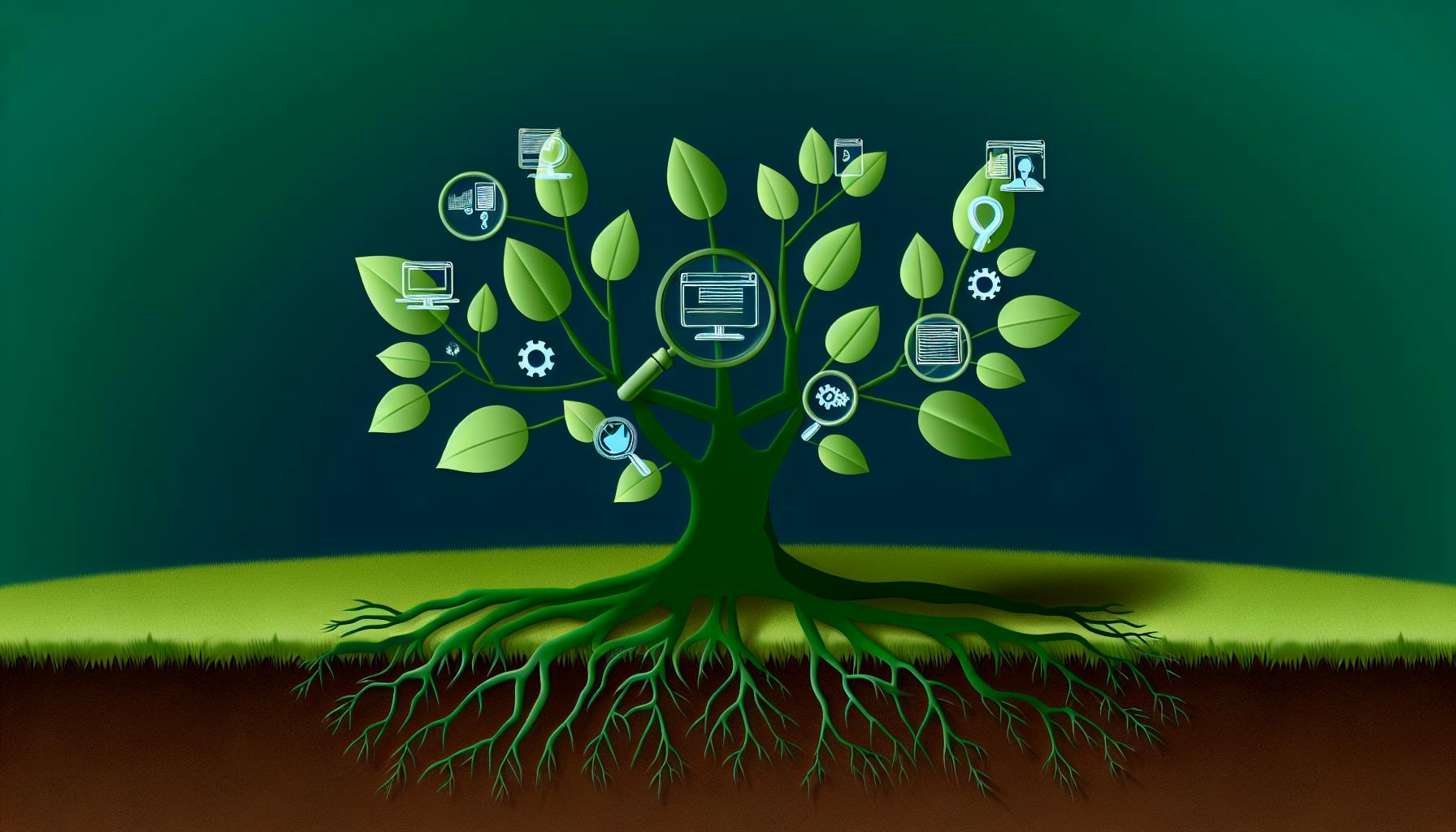Introduction
Getting your pages indexed by Google quickly is crucial for any website owner looking to enhance their search visibility and traffic. However, many site owners face challenges getting new or updated content indexed in a timely manner. Common issues like technical errors, thin content, and poor internal linking can cause significant delays.
In this post, we'll explore proven tactics to optimize your site for faster indexing. By implementing key on-page and technical factors, while also utilizing automated tools, you can slash the time needed to get pages indexed from days or weeks down to just 24-48 hours.
Whether you've recently launched a site, published new content, or redesigned pages, proper optimization and automation can help Google crawl, index, and rank your pages much more rapidly. Let's dive into the specific steps you can take to expedite indexing across architecture, content, and links.
How Does Google Index Web Pages?
Before exploring how to speed up indexing, it's important to understand what page indexing entails. Essentially, Google discovers new or updated pages on your site through crawling, then processes and indexes the content so it can appear in search results.
The indexing process involves three key steps:
- Crawling - Googlebot systematically browses the web and follows links to discover new and updated content. It extracts info from pages.
- Processing - Google analyzes page content like text, titles, headings, links, and images. It checks for spam and quality.
- Indexing - Page content gets added to Google's massive search index database so it can surface for relevant queries.
Fig 1. Overview of how Google indexes web pages
The goal is to get new or recently modified pages indexed fully within 24-48 hours to maximize visibility and search traffic as quickly as possible. While overall site indexing matters, prioritizing page-level indexing ensures new content gets discovered rapidly.
Top Barriers to Fast Indexing
Several issues can delay Google from crawling, indexing, and ranking pages in a timely manner. For instance, site errors like 404s or 500s prevent crawlers from accessing pages. Thin, low-quality content also signals that a page lacks value.
- Technical errors - 404s, 500s, site downtime all block Googlebot from indexing
- Thin content - Short, empty pages tell Google low quality/value
- Weak internal linking - Improper site architecture hides new pages from discovery
- Duplicate content - Multiple copies of same content triggers indexing penalties
- Security measures - Password protection, firewalls stop Googlebot access
- Slow performance - Delayed crawl speed limits how fast pages get indexed
Optimizing for Faster Indexing
Now that we've explored the key challenges, let's discuss actionable tactics to optimize your site for rapid page indexing. This covers both on-page and technical factors under your control, along with external link building signals.
On-Page Optimization Tips
First, make sure your site is technically sound and accessible to Googlebot. Fix any crawl errors or broken links that might block bots from indexing pages. Improving site architecture through siloed categories and effective internal linking helps Google discover new content faster.
Here are 5 key on-page optimizations to implement:
- Fix broken links - Repair any 404 errors directing Googlebot to missing pages
- Improve site architecture - Structure info in logical silos with related subpages
- Optimize titles & meta - Well-written snippets help Google understand the content
- Create unique content - Valuable, substantive pages indicate quality
- Add alt text to images - Helps Google interpret and index the images appropriately
Optimizing page titles and meta descriptions gives Google snippets to display in results for relevant searches. Creating useful, unique content also signals value to Google's algorithms while keeping visitors engaged. Consider adding structured data markup where applicable as well.
Technical SEO Factors
Beyond content, site speed and server performance impact how quickly Google can crawl and index pages. Improving site security protocols like SSL while easing restrictions through robots.txt and sitemaps helps Googlebot.
Leveraging proper 301 redirects, limiting pagination or filtering of content, and reducing overall site crawl burden optimizes crawling efficiency. CDNs and caching can further improve site speed and stability.
- Improve site speed - Faster sites get crawled more frequently by Google
- Strengthen security - SSL, protections against hacking
- Update robots.txt - Ensure Googlebot access to key pages
- Limit pagination - Avoid excessive use of paginated content
- Implement 301s properly - Redirects pass signals to new pages
Link Building for Indexing
Link signals are crucial for getting new pages indexed faster. Build high-quality links from relevant sites in your niche, prioritizing authoritative domains with strong metrics. Leverage social shares as quick indexing signals. Submit new pages to search engines through manual tools.
Develop genuine relationships with sites to request backlinks. Varied anchor text helps signal relevancy and expands keywords associated with your pages. Ultimately more referral data from quality sites tells Google your new content deserves visibility.
For example, guest posting on industry blogs like SearchEngineJournal.com or outreach to similar sites like Ahrefs.com would send strong indexing signals. Contest giveaways and viral social promotions also help kickstart discovery.
Expedite Indexing with Automated Tools
Beyond manual optimization efforts, leveraging the right tools can automate and expedite indexing further. Let's explore some of the top options available to speed up getting your latest pages indexed by Google.
SEO Crawler Simulation
SEO crawlers like DeepCrawl and Screaming Frog emulate Googlebot behavior to identify issues blocking indexing. However, while helpful for diagnostics, they don't directly speed up indexing itself. Paid tools like these allow customizable crawl rules and integrations to then fix identified problems.
Tool
Key Features
Pricing
DeepCrawl
Advanced filters, custom workflows
$499+/mo
Screaming Frog
Bulk analysis, csv exports
$149-$999/yr
Manual Submission Tools
Google Search Console and Bing Webmaster Tools allow manual submission of new URLs for indexing. However, delays often occur before Googlebot crawls and indexes submitted pages. Manual tools require significant effort and time investment as well. Paid alternatives like Linkody can help expedite submissions across multiple engines.
Automated Indexing Services
Automated solutions like IndexGoogle's Auto Indexing tool submit new or updated pages automatically based on triggers like publishing via CMS, Git commits, or custom APIs. Pages get crawled and indexed hands-free without any manual labor. Some tools like IndexGoogle use machine learning to analyze pages and optimize content for faster indexing as well. With 24/7 operation, new pages can get indexed within 24 hours.
Conclusion
Getting your new or updated web pages indexed by Google quickly is key for driving traffic and visibility. By fixing technical issues, optimizing on-page factors, and building links, you can significantly expedite indexing. Leveraging automated submission tools like IndexGoogle's Auto Indexer takes things a step further for hands-free, round-the-clock indexing within 24-48 hours.
Implementing the optimization tips covered in this article will help you slash the time needed to get pages indexed fully by Google. Focus on creating high-quality content, strengthening site architecture, and leveraging automation to speed up discovery and indexing across the board. With the right tactics, you can rapidly enhance your search visibility and traffic.


